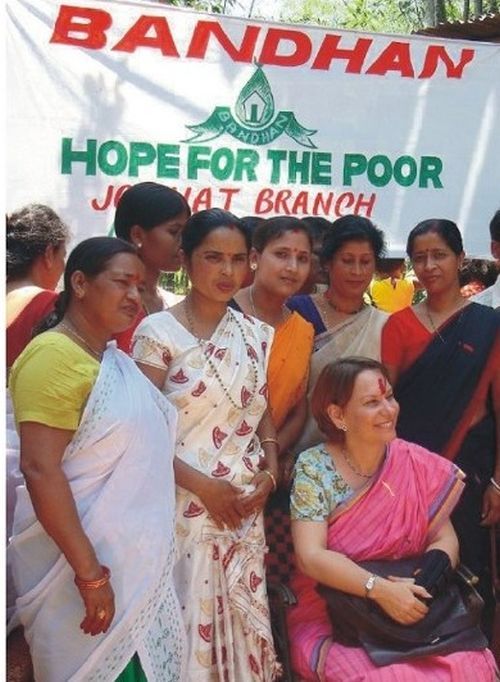RBI is planning to come up with 'on tap' licences which means there will not be any cut-off date for applying for the licences.
 The niche banks - small finance and payments banks -have been set up to further the regulator's objective of deepening financial inclusion.
The niche banks - small finance and payments banks -have been set up to further the regulator's objective of deepening financial inclusion.
Since April 2014, the Reserve Bank of India (RBI) has granted 23 banking licences to new players - two were given universal banking licences (April 2, 2014), 11 were issued payments banks licences (August 19, 2015) and 10 were given licences for small finance banks (September 16, 2015).
The niche banks - small finance and payments banks -have been set up to further the regulator's objective of deepening financial inclusion. Going ahead, RBI is planning to come up with "on tap" licences which means there will not be any cut-off date for applying for the licences.
Headquarters of the new banks
UNIVERSAL BANKS
Mumbai - IDFC
Kolkata - Bandhan
PAYMENTS BANKS
Mumbai
Aditya Birla Nuvo
Fino PayTech
National Securities Depository
Reliance Industries
Dilip Shantilal Shanghvi
Tech Mahindra
Vodafone M-pesa
New Delhi
Airtel M Commerce
Department of Posts
Vijay Shekhar Sharma
Chennai
Cholamandalam Distribution
SMALL FINANCE BANKS
Mumbai
Au Financiers
Suryoday Micro Finance
Jalandhar
Capital Local Area Bank
Ahmedabad
Disha Microfin
Chennai
Equitas Holdings
Thrissur
ESAF Microfinance and Investments
Bengaluru
Ujjivan Financial Services
Janalakshmi Financial Services
Varanasi
Utkarsh Micro Finance
Guwahati
RGVN (North East) Microfinance
REGULATORY REQUIREMENTS
UNIVERSAL BANKS
Eligibility
Companies in the private and public sectors and non-banking financial companies (NBFCs) will be eligible to set up a bank through a wholly-owned non-operative financial holding company (NOFHC). These applicants need to meet the criteria set by RBI. The players will also need to have a sound and successful track record of 10 years
Capital requirement
The initial minimum paid-up voting equity capital for a bank needs to be at least Rs 500 crore (Rs 5 billion). The bank will need to be listed within three years of starting business
Scope of activity
The bank can accept deposits and carry out lending activities without limitations in the area of operations.
Also, the banks will have to work towards achieving financial inclusion and 40 per cent of their lending should be towards the priority sector.
Promoter's contribution
The NOFHC and the bank will not have any exposure to the promoter group. The bank will not invest in equity / debt capital instruments of any financial entities held by the NOFHC
Foreign shareholding
The aggregate non-resident shareholding in the new bank will not exceed 49 per cent for the first five years, after which it will be according to the existing policy - 49 per cent under the automatic route and 74 per cent under the approval route
Other conditions
The bank's board should have a majority of independent directors. It needs to open at least 25 per cent of its branches in unbanked rural centres (population of up to 9,999, according to the latest census).
Also, banks promoted by groups having 40 per cent or more assets/income from non-financial business will require RBI's prior approval for raising paid-up voting equity capital beyond Rs 1000 crore or for every block of Rs 500 crore
PAYMENTS BANKS
Eligibility
Prepaid payment Instrument issuers, individuals/professionals, NBFCs, corporate business correspondents, mobile telephone companies, super-market chains, real sector cooperatives that are owned and controlled by residents, and public sector entities are eligible to apply for payments bank licences.
The promoter should be able to meet the 'fit and proper' criteria with a sound track record of of five years
Capital requirements
The minimum paid-up equity capital for payments banks shall be Rs 100 crore
Scope of activity
Can accept deposits of up to Rs 1 lakh a customer and issue debit cards. It can also carry out payments and remittance services and is allowed to distribute insurance and mutual fund products.
Payments banks can also serve as a business correspondent of another bank.
Promoter's contribution
The promoter's minimum initial contribution to the paid-up equity capital should be at least 40 per cent for the first five years from the start of its business.
Foreign shareholding
The foreign shareholding in payments banks would be according to the foreign direct investment (FDI) policy for private sector banks - 49 per cent under the automatic route and 74 per cent under the approval route.
Other conditions
The operations of the bank should be fully networked and technology-driven from the beginning and it should also have a high powered customer grievances cell to handle complaints
SMALL FINANCE BANKS
Eligibility
Resident individuals/professionals with 10 years of experience in banking and finance, companies and societies owned and controlled by residents, existing NBFCs, microfinance institutions, and local area banks can apply for small finance bank licences.
All entities should be owned and controlled by Indian residents and should be able to meet the 'fit and proper' criteria stated by RBI
Capital requirements
The minimum paid-up equity capital required is Rs 100 crore.
Scope of activity
They will primarily undertake basic banking activities of accepting deposits and lending to unserved and underserved sections, including small business units, small and marginal farmers, micro and small industries and unorganised sector entities.
There will not be any restriction in the area of operations of small finance banks.
Promoter's contribution
The promoter's minimum initial contribution to the paid-up equity capital of small finance bank should be at least be 40 per cent and needs to be gradually brought down to 26 per cent within 12 years from the start of operations.
Foreign shareholding
Foreign shareholding in small finance banks would be according to the FDI policy for private sector banks- 49 per cent under the automatic route and 74 per cent under the approval route.
Other conditions
The small finance bank will be subject to all prudential norms and regulations of RBI, as applicable to existing commercial banks, including requirement of maintenance of cash reserve ratio and statutory liquidity ratio.
Apart from this, they will be required to extend 75 per cent of adjusted net bank credit to the priority sector. Also, at least 50 per cent of its loan portfolio should comprise loans and advances of up to Rs 25 lakh.











